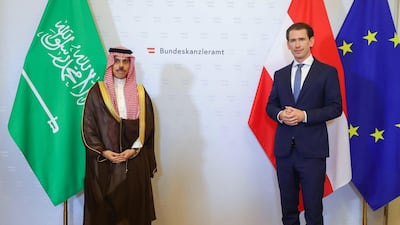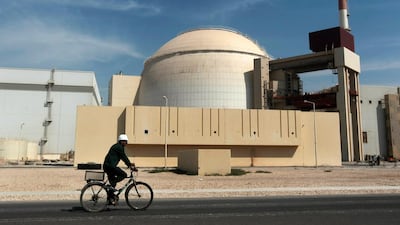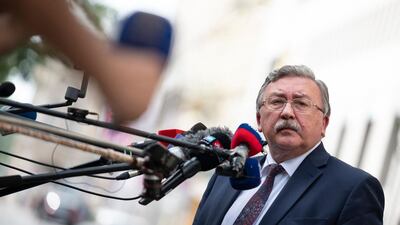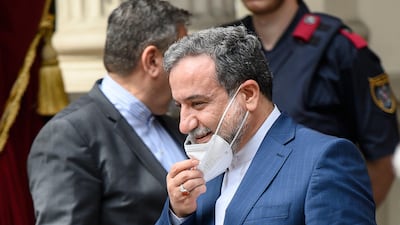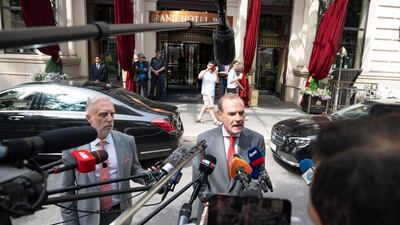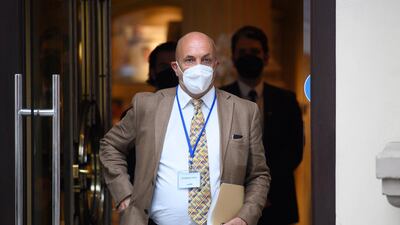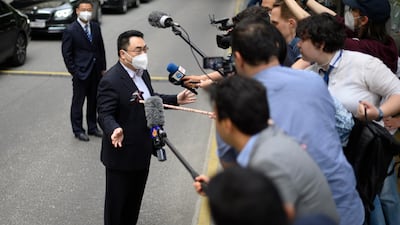The UN nuclear watchdog has demanded an immediate reply from Iran on whether it would extend a monitoring agreement that expired overnight on Friday.
This prompted an Iranian envoy to say that Tehran was under no obligation to provide an answer.
The agreement continued the International Atomic Energy Agency's collection of data on some of Tehran's activities, cushioning the blow of Iran's decision in February to reduce co-operation with the agency.
"An immediate response from Iran is needed in this regard," the IAEA said in a statement that summarised a report by its chief Rafael Grossi to its 35-nation Board of Governors.
Mr Grossi wrote to Iran last week "to understand Iran's position regarding the possible continued collection, recording and retention of data", the report said.
As of Friday, Iran had not indicated if it intended to maintain the arrangement, it said.
Iran's ambassador to the IAEA, Kazem Gharibabadi, "said that Iran was not required to comply" with the IAEA head's request, Iran's semi-official news agency Tasnim reported.
Washington believes Tehran should engage the IAEA immediately, said a US State Department official.
Failure to do so would contradict Iran's stated desire for both to resume compliance with the 2015 Joint Comprehensive Plan of Action nuclear deal as soon as possible, said the official.
"Iran should engage the IAEA without further delay to ensure appropriate measures remain in place so the IAEA's continuity of knowledge on JCPOA monitoring can be readily re-established," the US official said on condition of anonymity.
Iran and the US have been holding indirect talks on reviving the 2015 nuclear deal between Tehran and major powers that imposed restrictions on Tehran's nuclear activities in exchange for lifting international sanctions.
The Vienna talks, which began in April, are now in a pause that had been expected to last until early July, but failure to extend the monitoring accord could throw those negotiations into disarray.
"Regarding the IAEA, this remains a serious concern," US Secretary of State Antony Blinken said.
"The concern has been communicated to Iran and needs to be resolved."
The US abandoned the deal under former president Donald Trump in 2018 and re-imposed harsh US sanctions, prompting Iran to respond by breaching many of its restrictions.
Significant differences with Iran
One of Iran's moves to reduce compliance was its February decision to end the deal's extra IAEA monitoring of some nuclear activities.
The temporary agreement continued that monitoring and a one-month extension ended overnight.
Officials on all sides have said there are major issues to resolve before the nuclear deal can be revived.
"We still have significant differences with Iran," Mr Blinken said, adding that he hoped a resumption of talks in the coming days could settle them.
"We are just not there yet."
